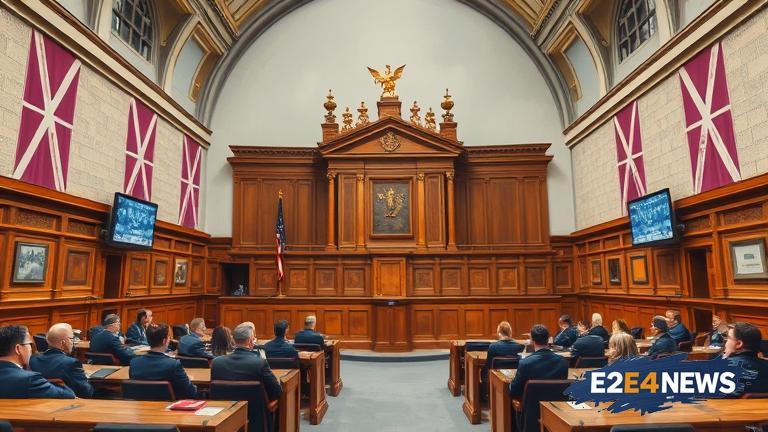The introduction of livestreaming services in Scottish criminal courts marks a significant milestone in the country’s judicial system. This innovative approach aims to promote transparency, accountability, and public engagement with the courts. By allowing citizens to remotely access and observe court proceedings, the service fosters a deeper understanding of the justice system and its workings. The livestreaming service is expected to enhance the overall efficiency and effectiveness of the courts, while also providing a unique opportunity for the public to witness the administration of justice. The service will initially be available for select cases, with plans to expand its coverage in the future. This development is seen as a major step forward in Scotland’s efforts to modernize its justice system and make it more accessible to the public. The use of technology in the courts is expected to increase public confidence in the justice system, while also providing a valuable resource for researchers, journalists, and other stakeholders. The livestreaming service will be managed by the Scottish Courts and Tribunals Service (SCTS), which will ensure that all broadcasts are conducted in accordance with strict guidelines and protocols. The SCTS will work closely with judges, lawyers, and other court officials to ensure that the service is implemented smoothly and without disrupting the normal functioning of the courts. The introduction of livestreaming services in Scottish criminal courts has been welcomed by legal experts, who believe that it will help to promote a more open and transparent justice system. However, some have also raised concerns about the potential risks and challenges associated with livestreaming court proceedings, including issues related to privacy, security, and the potential for misuse of the service. To address these concerns, the SCTS has implemented robust safeguards and guidelines to ensure that the service is used responsibly and in accordance with the law. The livestreaming service is expected to have a significant impact on the way that justice is administered in Scotland, and its introduction is seen as a major achievement for the country’s justice system. The service will provide a unique opportunity for the public to engage with the courts and to gain a deeper understanding of the justice system. It will also provide a valuable resource for researchers, journalists, and other stakeholders who are interested in the administration of justice. The introduction of livestreaming services in Scottish criminal courts is part of a broader effort to modernize the justice system and make it more accessible to the public. This effort includes the use of technology to improve the efficiency and effectiveness of the courts, as well as initiatives to increase public engagement and participation in the justice system. The Scottish government has committed to supporting the development of the livestreaming service, and has allocated significant resources to ensure its success. The introduction of livestreaming services in Scottish criminal courts is a significant development that is expected to have far-reaching consequences for the justice system in Scotland. It is seen as a major step forward in the country’s efforts to promote transparency, accountability, and public engagement with the courts. The service is expected to increase public confidence in the justice system, while also providing a valuable resource for researchers, journalists, and other stakeholders. The use of technology in the courts is expected to continue to play an increasingly important role in the administration of justice in Scotland, and the introduction of livestreaming services is seen as a major milestone in this effort. The Scottish Courts and Tribunals Service will continue to monitor the use of the livestreaming service and make adjustments as necessary to ensure that it is used responsibly and in accordance with the law. The introduction of livestreaming services in Scottish criminal courts is a significant achievement that is expected to have a lasting impact on the justice system in Scotland.
